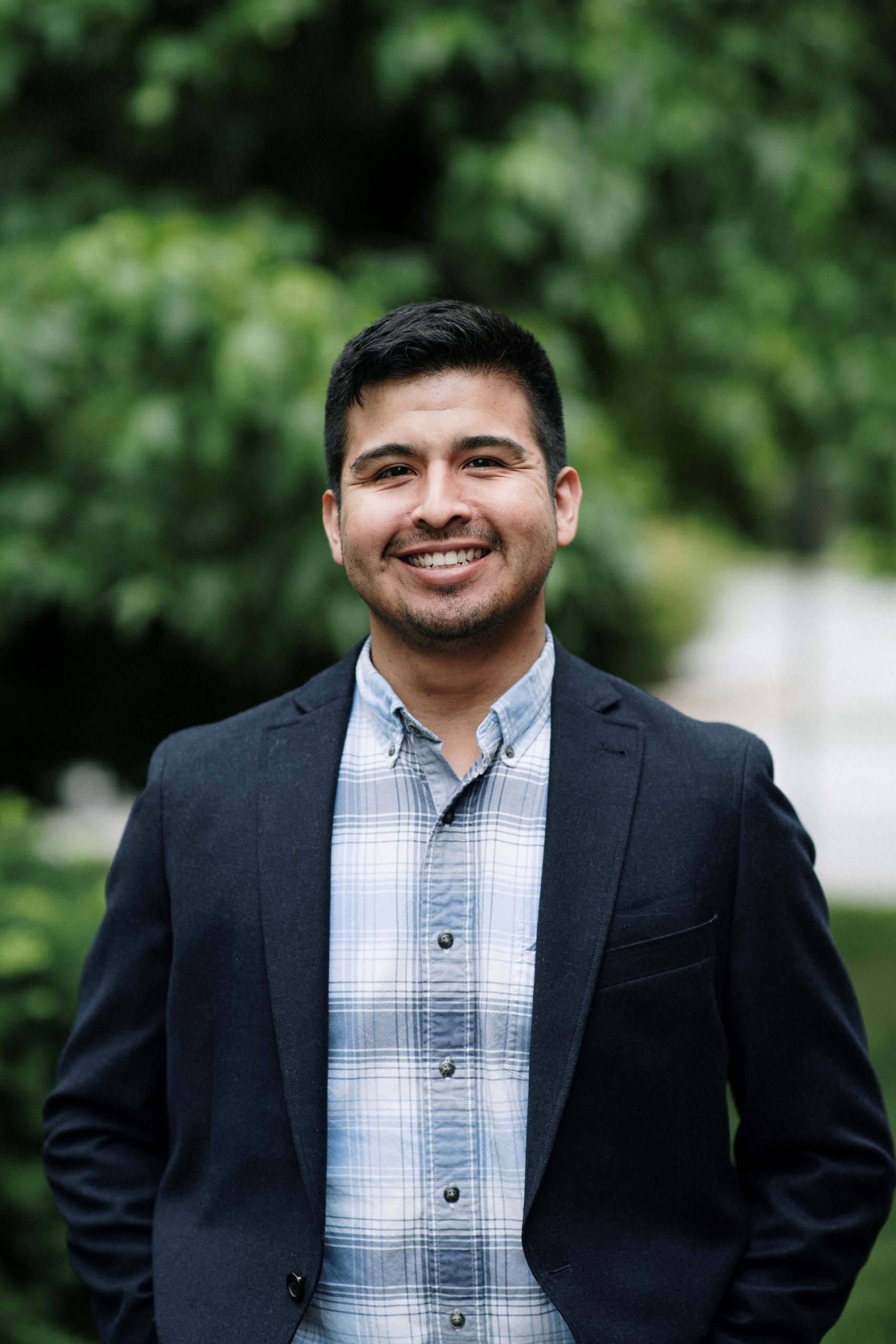⏱️ Estimated Reading Time: 9 min read
1 John 4:19-21, “We love because he first loved us. If anyone says, “I love God,” and hates his brother, he is a liar; for he who does not love his brother whom he has seen cannot love God whom he has not seen. And this commandment we have from him: whoever loves God must also love his brother.”
Racism and the Local Church
Racial prejudice should not exist within the body of believers. Though it does exist, the Christian church should confess such sin and turn from it to Christ. At one time in my life, such prejudice existed in my own heart. I professed to know the love of God, but I hated people who looked just like me. By the grace of God, He placed in my heart that loving Him meant loving others.
Tracing Back to my Racist Heart
I was born in Bolivia in South America when I was three months old. I grew up with two white parents who adopted me and brought me to America. I went to a predominantly white school and a mostly white church. During outings with my parents, I would often count how many people looked like me out in public. I often felt awkward walking into restaurants while people would glare at my parents and I. I found it hard to deal with, but I kept quiet.
My parents did everything they could to educate me on the differences of race. We often watched movies and read books with characters of different races. My dad had friends from work who were Laos-American, African-American, and Hispanic. During cookouts, I would also be exposed to different cultures, and we are still connected to those folks today. My parents were apart of the exchange student program that brought students from different countries to live with us and attend school.
Being active in sports also allowed me to be around people who were not only white. But for the longest time, I only had Caucasian friends. When I was led to the Christian faith, I was led to be around more Caucasian friends. I didn’t know any Christian youth who were my ethnicity in our youth group. But I began to blend in. I was often told that I was just like my white friends. My friends never paid attention to my skin color. This led to my own avoidance of paying attention to my skin color, and that’s where I trace the beginnings of my racial prejudiced heart.
Looking Back at My Racist Heart
Racial prejudice is having an irrational thought about a particular race that may not be true. Oftentimes racial prejudice is one race viewing another race wrongly. My problem was I viewed people of my own race in a negative light. I remember when I would hear accusations and demeaning comments towards being directed at people who shared the same ethnicity as me. In my context in the South, Hispanics worked the grossest of jobs. Usually, these people would be classified as illegal immigrants. These folks could very well be U.S. citizens, but the stereotype was that these people were in the country illegally. They were shamed for taking jobs and living off the government’s money.
I heard these things not only around my peers but in my church. I remember only horrible things being said of those people who shared the same ethnicity as me. As the comments poured in, I started taking the side of my Caucasian acquaintances. This began to take effect on me inwardly. I knew I believed in Christ, but I hated my ethnicity. I often felt like I was bound to be like these people who I thought were second-class citizens. There were times I wanted to be white like my parents, and like my friends. People of my race worked lower class jobs, but they did it to provide for their family. I was selfish, judgmental, and didn’t have a right view of these men who were made in the image of God. It affected how I shared the gospel. The few times I shared my faith was only to people who looked like the way I wanted to look. It was around the time I was 14 or 15 years old that I remember feeling this way, but by the time God gave me faith in Christ and showed me His love, things changed.
To Love God is to Love Your Brother
In verse 1 John 4:19 we read a biblical passage that is just about as popular as John 3:16. It starts out with “We love…” not because He needs our love, not because we are able to love in our own strength, but “because He first loved us.” The Gospel of Jesus Christ is the love of God. Though we are an unlovable, rebellious, hateful people God “sent His Son as a propitiation for our sins” (1 John 4:10).
In Christ, we are made presentable in the sight of God. In order for us to be able to love, we must be loved by Love Himself (1 John 4:8). Do you know the real love of God in Christ? Look no further with me than to Ephesians 2:4-5, “But God, being rich in mercy, because of the great love with which he loved us, even when we were dead in our trespasses, made us alive together with Christ by grace you have been saved.”
God who has enabled you to love didn’t do so because He needed your love. He loved you first. Since we have experienced this first act of saving love, we are then able to practice loving others joyfully. In verse 20, John says to wait; there is more. It is easy to take verse 19, place it in your pocket, and exalt in the fact that God loved us first. But there are implications to God loving us first. In verse 20, John says that one cannot merely profess to love God without following it up with also loving his brother.
Christian, you don’t get a pass on not having to love your brother or sister in Christ. If you think that your black, brown, or mocha frappe skin-colored brother or sister in Christ is not worth your love, then you ought to repent quickly!
Finally, in verse 21, John directs our attention to our Lord’s command, which we cannot afford to dismiss. The evidence of not loving your brother or sister in Christ shows what’s really in your heart. At the time when I had discrimination in my heart towards others of different skin colors, if you were to be able to peer into my heart at that time, you would not tangibly see the love of God. Instead, you would see I harbored hatred in my heart towards those who looked different from me. Love for fellow Christians does not merit our salvation, but it does demonstrate a regenerate heart. And flowing from a regenerate heart is a genuine love for fellow Christians.
Loving Others That Don’t Look Like You
I once despised my brothers and sisters in Christ who looked like me. I thought I was better than them because I was raised differently. I was raised with a type of privilege that I haven’t understood fully until the last few years. Though I bear the skin tone of a Hispanic person, I never faced social barriers or education hurdles as they did. I also never faced the fear of being deported. Furthermore, I never had to worry whether or not my family would be taken from me. I was Hispanic, and I was safe.
God brought to my mind after I became a believer that people of different races are made by Him and should not be treasured not belittled. God has created all races to glorify Him. The church should not segregate over skin color, but it should rejoice together in the Creator’s Handiwork.
Prejudice based on skin color is a lie that we gently, but actively need to expose among our congregations with the Word. We also need the Holy Spirit through the ministry of the Word to spotlight areas in our lives where we may have racial prejudice towards others. After all, every single Christian is Beloved by the Lord Himself, so they should be precious to us, also.
In fact, Jesus commands us not only to love Him and our brothers and sisters in Christ, but also to be witnesses in Jerusalem, in Judea, Samaria, and the world with the gospel (Acts 1:8). In order to take the gospel across racial lines, we need to love more like God and less like ourselves. This is the only way we will see the church love the way God does.
Today, we can start addressing this area first in our own lives by taking how God first loved us, and apply it to our lives as Christians. Since He first loved us, we are loved by Him, and can now love others. As we press home that truth into our hearts all the more, we will increasingly have a longing to share not only the gospel with others, but to pray for others all around us who look different from us, in our churches, in our communities, and in our world.
Then, we will be conforming daily into the image of Christ and begin sharing the gospel without fear or shame with those who don’t look like us and have genuinely repented of our prejudice. Only then can we start to love those who look different from us, not only in our churches, but also across the street, at the grocery store, and wherever we go. This will demonstrate not only to other Christians we are growing but to the world that we take Jesus clear statement in John 13:35 that we are to love one another seriously. It’s that kind of love from God first loving us then enabling us to love one another that is the best apologetic to a watching world that so desperately needs genuine love that first comes from God through the finished and sufficient work of Christ and then flows to others.




